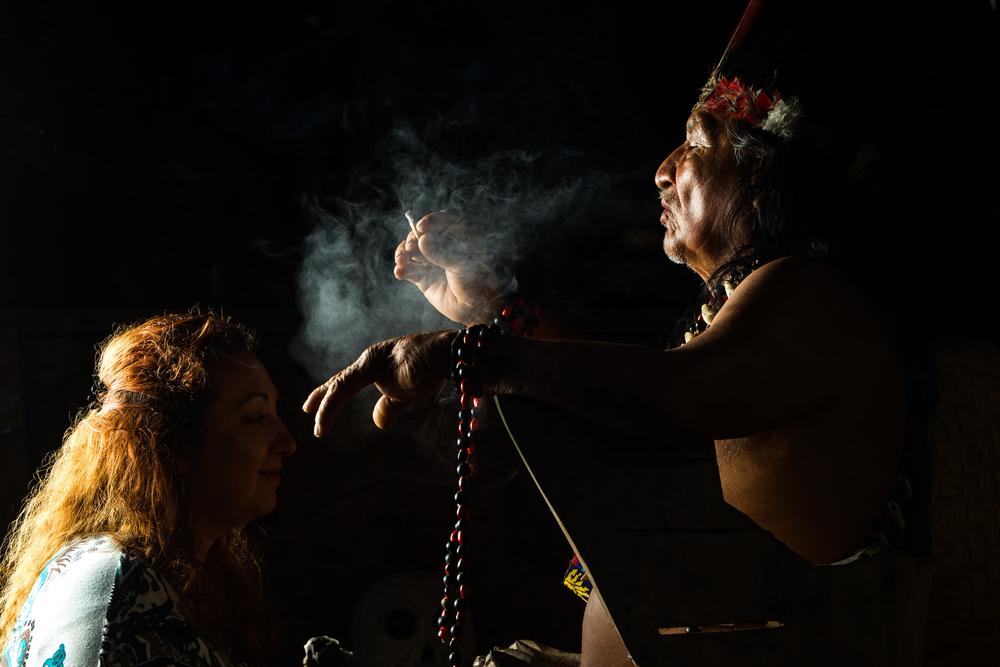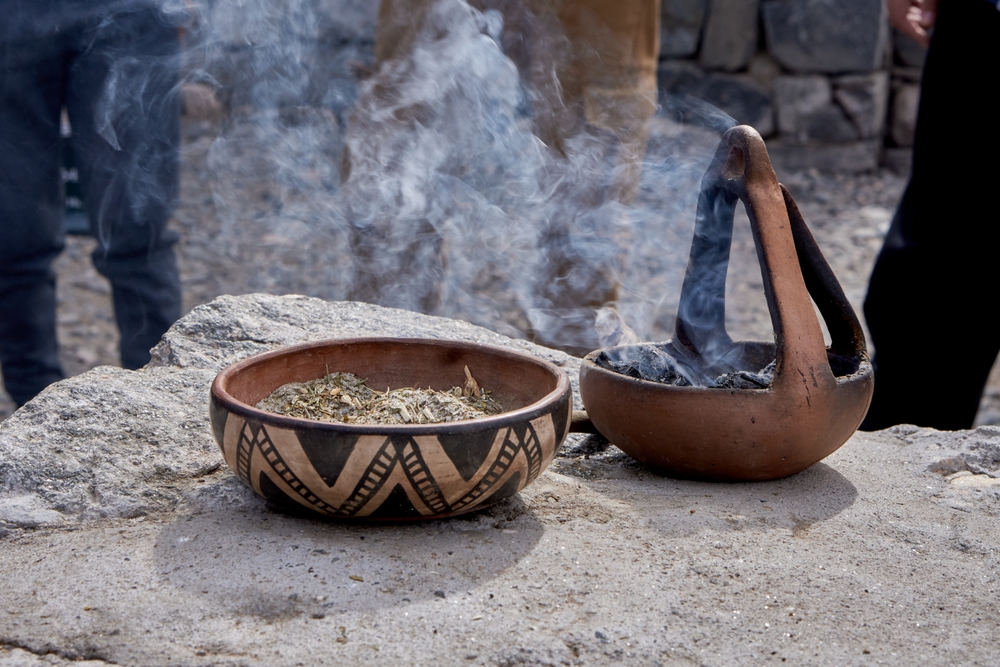In today’s fast-paced world of technological breakthroughs and cutting-edge pharmaceuticals, something remarkable is happening: people are looking back to ancient traditions for answers. Practices like acupuncture, Ayurveda, and herbal medicine—once sidelined as “alternative” treatments—are gaining a new wave of respect in modern healthcare.
What’s driving this change? It’s a combination of factors: rising chronic health issues, growing interest in holistic care, and mounting scientific evidence that validates the benefits of these time-tested approaches. For many, these practices offer what conventional medicine sometimes lacks—a focus on prevention, balance, and the whole person. As healthcare systems worldwide embrace a more integrative approach, acupuncture, Ayurveda, and herbal remedies are becoming key players in shaping a future that merges ancient wisdom with modern science.
Rediscovering Ancient Wisdom: How Traditional Healing Practices Are Shaping Modern Medicine

In a world driven by technological advancements and pharmaceutical breakthroughs, a subtle shift is taking place: the revival of ancient healing practices. These age-old traditions, rooted in centuries of cultural wisdom, are capturing the attention of modern healthcare for their holistic approach to wellness. From the balance-centered practices of Ayurveda and Traditional Chinese Medicine (TCM) to the plant-based remedies found in herbal medicine, ancient healing systems are being revisited as people seek natural ways to manage health and wellbeing.
This renewed interest isn’t just about nostalgia or alternative treatments; it’s about a profound recognition of the benefits these practices offer. As conventional medicine grapples with rising chronic health issues and mental health challenges, many are turning to traditional methods to complement and enhance their healthcare. In this journey into the world of ancient wisdom, we’ll explore how these practices are making a comeback, blending seamlessly with modern science to create a more balanced, holistic view of health.
Acupuncture: An Ancient Fix That’s Winning Modern Hearts
Acupuncture has been around for thousands of years, but it’s not just some old-school remedy stuck in the past. This Traditional Chinese Medicine practice works on the idea that your body’s energy, called Qi (pronounced “chee”), flows through invisible pathways. When something throws that flow out of balance, you start feeling the effects—like pain, stress, or other health issues. Acupuncture uses tiny needles to help get that energy back on track.
What’s cool is how it’s gone from being an ancient tradition to something you can now find in modern hospitals and clinics. It’s not just about needles anymore; science is backing it up. Researchers have found that acupuncture helps release endorphins, your body’s natural painkillers, and can calm an overworked nervous system. That’s why it’s showing up as a treatment option for chronic pain, migraines, and even anxiety.
People are turning to acupuncture because it doesn’t just treat the symptoms—it helps your body reset itself. Whether you’re dealing with a stiff back or looking for some stress relief, it’s proof that old practices can fit perfectly into today’s world of healthcare.
Ayurveda: Ancient Healing That Feels Tailored Just for You

Ayurveda has been around for thousands of years, and it’s all about keeping things balanced. This system of medicine, which started in India, doesn’t treat everyone the same way. Instead, it focuses on your unique energy, or “doshas”—Vata, Pitta, and Kapha. When these are out of whack, that’s when you start feeling off, whether it’s stress, poor digestion, or low energy.
What’s amazing is how Ayurveda’s focus on personalized care is starting to click with modern healthcare. For instance, turmeric, one of Ayurveda’s go-to remedies, is getting a lot of attention. Science has found that curcumin, the compound that gives turmeric its golden color, can help with inflammation and joint pain. Then there’s ashwagandha, an herb known for easing stress and boosting energy, which is now a favorite in wellness circles.
The reason Ayurveda is making such a strong comeback is simple—it’s not just about fixing problems after they show up. It’s about creating a lifestyle that helps you stay balanced and healthy in the first place. More doctors and wellness programs are starting to include Ayurvedic practices because they tap into something we all need: a little harmony in our busy lives.
Herbal Remedies: Why We’re Turning Back to Nature
It’s no secret that plants have been our go-to healers for centuries, but lately, they’re making a serious comeback. Herbs like turmeric, chamomile, and ginkgo biloba are proving that nature might just have some of the answers we’ve been looking for all along.
Let’s talk about turmeric. Sure, you’ve probably seen it in trendy lattes or recipes, but it’s been a staple in Ayurveda for generations. Why? Because it works. Science is now catching up, showing that curcumin—the magic ingredient in turmeric—can help with inflammation and even joint pain. And then there’s ginkgo biloba, often called a “brain booster.” Traditional Chinese Medicine has relied on it for years to help with memory and circulation, and now studies suggest it could even help with age-related memory loss.
What makes herbal remedies so appealing today? They’re natural, they’re gentle, and they don’t come with a laundry list of side effects. Plus, in a world that’s all about going green, these plant-based solutions fit right in. Whether it’s a calming cup of chamomile tea or a turmeric capsule, these remedies remind us that nature’s been on our side all along.
Bridging Ancient Wisdom with Modern Science
It’s pretty incredible how ancient practices like acupuncture, Ayurveda, and herbal remedies are finding their way into modern healthcare. What’s making this happen? Science is stepping in and confirming what people have believed for centuries—these methods actually work.
Take acupuncture, for example. It’s not just about pain relief anymore. Studies have shown that it can trigger your body to release endorphins (those feel-good hormones) and calm your nervous system. That’s why you’ll now find it being used for everything from migraines to anxiety, and even fertility treatments. Ayurveda is getting its moment too. Ingredients like turmeric and ashwagandha, staples in Ayurvedic medicine, are now backed by research showing they can help with inflammation and stress.
What’s cool is how science and tradition are teaming up. Researchers are digging into how these remedies work on a deeper level, while doctors and wellness experts are starting to embrace them as real options for their patients. It’s like the best of both worlds—ancient wisdom and modern science coming together to offer us more ways to stay healthy.
Why Modern Healthcare Is Embracing Ancient Practices

It’s no coincidence that practices like acupuncture, Ayurveda, and herbal remedies are showing up more in hospitals and wellness clinics. The healthcare world is shifting, and people are looking for options that feel more personal and less about just treating symptoms. These ancient methods bring something modern medicine often misses—a focus on the whole person.
One big reason for this shift is the rise in chronic conditions like stress, anxiety, and pain. Traditional approaches, like acupuncture or turmeric supplements, don’t just address the surface problem; they often get to the root of what’s going on. Plus, there’s a growing pile of research showing these methods actually work, which helps bridge the trust gap between ancient practices and modern science.
Another driver? People are getting tired of treatments that come with long lists of side effects. Herbal remedies and therapies like acupuncture offer a gentler, often more sustainable option. This is especially appealing in a world that’s becoming more eco-conscious and wellness-focused. It’s clear that ancient practices are no longer “alternative”—they’re becoming an essential part of how we approach healthcare today.
Honoring the Past, Healing the Future
Ancient healing practices aren’t just making a comeback—they’re reshaping how we look at health. Acupuncture, Ayurveda, and herbal remedies remind us that healthcare can be about more than quick fixes. They focus on treating the whole person, something many people feel is missing from modern medicine.
What’s even better? Science is catching up and giving these practices the credit they deserve. Research shows acupuncture can ease pain, while turmeric is proving to be a powerful anti-inflammatory. This combination of tradition and science is changing the game, offering a more balanced way to care for ourselves.
These practices also bring a deeper message: health isn’t just about fixing what’s broken. It’s about finding balance and feeling good from the inside out. Whether it’s an acupuncture session, a soothing herbal tea, or an Ayurvedic routine, these timeless methods are teaching us how to truly care for our minds and bodies in a way that lasts.
References:
- Bower, J. E., Irwin, M. R., & Kiecolt-Glaser, J. K. (2016). Mind-body therapies and control of inflammatory biology: A descriptive review. Brain, behaviour, and immunity, pp. 51, 1–11.
- Sharma, R. A., Gescher, A. J., & Steward, W. P. (2018). Curcumin: The story so far. European Journal of Cancer, 54, 209–229.
- Vickers, A. J., Cronin, A. M., Maschino, A. C., Lewith, G., MacPherson, H., Foster, N. E., … & Acupuncture Trialists’ Collaboration. (2012). Acupuncture for chronic pain: Individual patient data meta-analysis. Archives of Internal Medicine, 172(19), 1444–1453.


